- WHAT IS GOD DOING IN RELATIONS BETWEEN SAUDI ARABIA AND ISRAEL?
From the evening of her re-birth 70 years ago, Israel, has been always keenly aware and wary of the vast desert kingdom spreading southeastward from her western neighbor Jordan. Six months previous, Saudi Arabia had cast their vote against the UN Partition Plan paving the way for the birth of the Jewish State. Now, hours after Israel’s Declaration of Independence, as five Arab armies began their invasion to stamp out the new state, allied under the Egyptian army was a mass of soldiers sent from the Arabian Peninsula. Twenty-five years later, the Saudis would again send troops to support Egypt in the 1973 War. Afterwards, although there have been no further military overtures, Saudi Arabia has continued to be seen as an enemy nation, one with a hatred for Israel and Jews (By law, no Jew is allowed to live in the Kingdom). They have never opened diplomatic relations with Israel. It was with uneasiness that Israel witnessed in 2010 the US sale of $60 billion worth of F-15 fighters, attack helicopters and advanced munitions to this unfriendly nationsome of whose borders lie only minutes by air from our capital. For 70 years no Israeli passenger planes have been allowed over Saudi airspace (When, some years ago, the authors travelled to Thailand, our plane was forced to fly southwards along the Arava through the Gulf of Aqaba, then down the length of the Red Sea—with enemy state Sudan to the west, Saudi Arabia to the East— on southward to just before the Horn of Africa, where we finally made a sharp left turn eastwards out over the Arabian Sea towards India—
In recent years, there have been signs that this official stance of hostility may be, at some levels anyway, beginning cautiously to change. The Saudis came out with a “peace plan” related to the Israeli-Palestinian conflict. More recently, rumours began to surface of secret communications between the two countries. When the newly-elected President Trump made his maiden trip abroad last May, his first stop was to Saudi Arabia—from there his plane made one of the few flights ever allowed from Arabia to Israel. With the remarkable reforms which appear to be attending the rise of Crown Prince Muhammad Bin Salman Al Saud, an unprecedented warming of relations with Israel has begun to be spoken of as a legitimate possibility (PM Netanyahu recently spoke of Israeli relations with the Arab world—obviously including Saudi Arabia—as “best ever.” As of this week, the flights from India over the Arabian peninsula will continue three times a week.
Then this past Thursday night, history was made. For the first time in Israel’s 70 year history, a passenger plane from another country was allowed to travel the length of the Arabian Peninsula (see map above) enroute to Tel Aviv. The Air India Boeing 787 from New Delhi touched down at Ben Gurion Airport at 10:15 p.m. Israeli Transport Minister Yisrael Katz described the occasion as “the first time that there is an official connection between the state of Israel and Saudi Arabia.” Of its enormous significance, one Israeli analyst observed that even in the absence of an Israeli-Palestinian peace treaty (considered for years a prerequisite for relations between Israel and the Arab world), “this shows you can have small gestures that are of real meaning.” 1)
The most generally held explanation for this thaw in relations is that the Sunni Saudi government is eyeing the expansion of its Shi’ite arch-enemy Iran and its nearness to acquisition of nuclear weapons, and is therefore open to (at least temporarily) making an alliance with the Israelis, whom the Iranian Ayatolla’s have repeatedly vowed to annihilate. While not discounting this as a factor, we sense it is essential that we seek the Lord as to what He—Lord of the Nations—is doing. Of course there is war in the heavenlies, with evil powers and principalities over nations at war against the decrees of the Elyon—the Most High—on behalf of His redemptive purposes on the earth.
We believe that through the present year a season of grace is being extended in which nations are being granted opportunity for making choices as related to their alignments with God’s purposes in His covenant land and people Israel. How they choose will significantly determine their pathway in the season ahead—whether for blessing and awakening or for darkness and great deception and dilusion. During this year, there will be nations whose past histories would have indicated them to be last in embracing Israel, which will turn towards here—others with reputations as friendly will turn away.
During this window of opportunity, the determined efforts of intercessors, though small in number, may have great influence in swaying the stance of their leaders towards that which is good. It is remarkable that we see the leadership of Egypt, with whom Arabia allied strongly in both the 1948 and 1973 wars against Israel, slowly but steadily engaging in more friendly relations with her. We believe this is being surely facilitated through the prayers of millions of Christian believers and the many houses of prayer in that land who love and are praying fervently towards the fulfillment of the Isaiah 19 “Highway” which God says will connect “Egypt My people” with “Israel My inheritance.” If God has such plans for Egypt, where His people suffered bondage for 400 years, might He not also have redemptive plans for the Arabian Peninsula, where it is appears that these same Children of Israel may have wandered for 40 years in the desert? (In fact, in the opinion of a growing number of Biblical scholars, many factors point towards the very Mountain where the LORD came down and spoke with Moses as lying, not in the “Sinai Peninsula,” but in that area of Midian on the “back side” (i.e. the Arabian side) of the Gulf of Aqaba). Might not this area of the world in which the delusion of Islam arose—a delusion which holds vast throngs of people throughout the nations in a bondage not unlike that typified by Egypt before the Exodus—might not this area where His manifest presence once moved among His people Israel be one in which the God of Salvation longs to begin releasing freedom to captivities from evil—even from its very soarce? Perhaps this itself sounds delusional. But God, whose greatness will dwell in Jerusalem, is beginning to shake things—“Let the peoples tremble…let the earth shake, YHWH is great in Zion, He is exalted above ALL peoples…They SHALL praise Your great and awesome name: Holy is He!” (Psalm 99:1-3). This includes those in captivity to darkness in Saudi Arabia! Some of the Body of Messiah in Israel is using the shifts we sense occuring to stir us to pray for His life and blessing to spread over this great enemy from our past. After all, a part of our call, from the beginning, has been that through the seed of Abraham, every family and nation will find blessing! (Genesis 12:3; 22:18). Will you join with us
PLEASE PRAY:
* That the Spirit which is drawing a new generation in Saudi Arabia towards regarding Israel with favour, will increase.—that the leaders there would respond positively to this Spirit.
* That the “true Light which, coming into the world, enlightens every human being” (John 1:9), will illumine hearts of Muslims throughout the Arabian Peninsula to the truth that Issa-Yasuah-Yeshua-Jesus who was born in Bethlehem is the divine Son of God and saviour of the World (We personally have heard testimonies of former Muslims who were illumined by this Light while on the Haj in Mecca itself!).
* For Crown Prince Muhammad Bin Salman Al Saud, that He will be protected in mind and body; that the Power which has already been at work in him towards releasing freedoms towards women, and other areas of his society which have for centuries lain in unjust bondage and oppression, that this Power will reveal itself in a personal way.
* For Israel’s leaders, to regard the initiatives in Saudi Arabia with wisdom, discernment and grace. That God will work His alliances between the two countries out in His way and timing.
* That the grace and favour which is presently linking India and Israel will be released over the Arabian peninsula over which their flights are now free to take place!
1) “In world first, Air India crosses Saudi airspace to Israel”: AFP (Reprinted in The Times of Israel: 22 March 2018).
PASSOVER 2018/5778
“Therefore purge out the old leaven, that you may be a new lump, since you truly are unleavened. For indeed, Messiah (Christ), our Passover, was sacrificed for us. Therefore let us keep the feast, not with old leaven, nor with the leaven of malice and wickedness, but with the unleavened bread of sincerity and truth”
(I Corinthians 5:7-8).
Friday March 30th at sundown Jews throughout the world will be gathered round tables in obedience to the command in Exodus 12:14, “So this day shall be to you a memorial; and you shall keep it as a feast to the LORD throughout your generations. You shall keep it as a feast by an everlasting ordinance.” They will have cleaned leaven from their homes and will begin a week of eating only unleavened bread (Hebrew: matzot; Ex. 12:17-20). The word Pesach (Passover) comes from the Hebrew verb lifso’ach which means “to skip”. When the scourge passed through Egypt, those with the blood of the lamb on their doorposts were ‘skipped’ the judgment which was coming upon the gods of Egypt, and those who worshipped them. The meal is celebrated at a seder table. Seder means “order”. In modern Hebrew the word for ‘o.k.’ is b’seder—literally, ‘in order’. So, at the Seder table is presented an “ordered” account, both through reading and having a meal, of what God did on that first occasion. During the course of the meal, most families are guided by a book called a Haggadah. This word means “the telling” and is taken from Exodus 13:8, “And you shall tell your son on that day, saying, ‘It is because of what the LORD did for me when I came out of Egypt’”. Although the most-used version of this book contains here and there remarks and theories by once-revered rabbis, it is primarily a straightforward account of God’s deliverance of His people Israel from bondage in Egypt, interspersed with wonderful psalms, and other Biblical passages—many of which reference God’s yeshu’ah (His “salvation”), and a coming “anointed one”—Messiah.
At the heart of this “telling” as it has come down to our day is an addition called Afikomen. The word comes from a Greek word, meaning literally “that which comes after” or even, “the one who came”. At the beginning of the Seder three pieces of matza are placed into a three-fold pocket of cloth or paper. But the piece going into the middle compartment is first broken. Part of this broken piece of unleavened bread is placed in the middle pocket; the other piece, the Afikomen, is wrapped up and hidden away. After the meal, the children will seek the Afikomen…and the one who finds it will be given a redemption-price reward. Then all the participants at the table eat a portion of the Afikomen for dessert. Modern-day matza (or matzo) is unleavened, pierced and striped from the heat in baking. According to the Mishna, the Afikomen is a substitute for the “Korban Pesach”—the Passover Sacrifice, which was the last thing eaten at seders during the First and Second Temple periods.
It all seems so clear! A piece of unleavened bread, bruised and pierced is broken off, wrapped and hidden away (yet is still present with the tri-partite “oneness” in the pocket). When it is found by those who have sought it as little children, it brings great joy.
There is so much deep truth inserted by the Ruach haKodesh—“Holy Spirit” into the Hebrew traditions, yet there is still a veil over the hearts of most of our people, and they do not see.
[Note: Regarding the tradition of the Afikomen, some scholars believe there to be ample indication that Yeshua (Jesus) Himself may have instituted this practice, which then found its way into traditional observance because of the early Messianic Jews (See “The Meaning and Importance of the Jewish Holidays” by John Fischer, Sharing Bible, Messianic Vision, 1989, p.40.)]
Passover Week is also called in the Bible the “Feast of Unleavened Bread” (Hebrew: Chag Matzot). It lasts for seven days, beginning with the Seder on the evening of the 14th day of Aviv/Nisan (the First Month). The first and last days of the week are to be observed as Sabbaths (Leviticus 23:7-8). The days between these two “Sabbaths” are called chol ha’mo’ed…which means the “common” or “every-day normal” period of time between two set-apart (i.e. “holy”) days. During this week Israel is commanded to eat matzot—“un-leavened” bread—nor is any leavening agent to be found in her dwellings for the seven days. We will have more to say about this Feast of Unleavened Bread next week!
BEFORE THE BEGINNING OF THIS HOLY WEEK PLEASE PRAY:
*For the Light of Life to shine into our dwellings and hearts…exposing any “leaven” which needs to be cleansed.
*For Light to shine over Seder tables in Israel and around the world, to reveal the Truth of the “Lamb, slain from the foundation of the world”—who was separated from the Father while remaining one with Him, born in Bethlehem (lit: “bread-house”), bruised and pierced, cut off from mankind and hidden in the earth—the Lamb of God who atones for and takes away the sin of humankind—Who may be found by all who become like little children and seek; and whose finding brings Life, and Nourishment and Joy!
*For God’s protection over Israel during this two-week period when children are out of school and many families are out and about Israel enjoying the holidays.
THIS WEEK’S TORAH PORTION:
From ancient times there has been a weekly portion (Parashah) from the first five books of Moses (The Torah) and an ending (Haftarah) from the Prophets read on the Sabbath in synagogues around the world. This portion is given a Hebrew name drawn from the opening words of the Torah passage. An illustration of this practice appears to have been recorded in Luke 4:16 where Yeshua (Jesus) arrived in the synagogue in Nazareth and was asked to read the portion (Isaiah 61) from the Prophets. We have found that in perusing these weekly readings, not only are we provided opportunity to identify in the context of God’s Word with millions of Jewish people around the world, but very often the Holy Spirit will illumine specific passages pertinent that week in our intercession for the Land and people of Israel. The Haftarah, unless otherwise noted, will be that read in Ashkenazy synagogues around the world. The references for all texts are those found in English translations of the Scriptures.
Pray for the presence of Ruach haKodesh—the Holy Spirit/Holy Wind—
to attend the Holy Word which will be read throughout the week of Passover!
READINGS FOR THE FESTIVAL OF UNLEAVENED BREAD
Provided for those of our readers who may wish to follow the passages read next Saturday and the week following in synagogues around the world.
Day 1 (Saturday 31 March): Exodus 12:21-51; Numbers 28:16-25
Joshua 3:5-7; 5:2—6:1: 6:27
The Exodus passage recounts the first Passover, the slaying of the lamb and the placing of blood on the doorposts, the passing of YHVH through Egypt, the “skipping over” of those households with blood on the doors, the striking of the Firstborn of Egypt; the sending of Israel out of the Land, their going out arrayed as armies of the LORD 430 year to the day after being exiled to Egypt. The Numbers reading details the sacrifices to be offered on Passover during future observances (This reading will be repeated in some form each day throughout the week). The Haftarah from Joshua details the time, over forty years later, when the next generation, before entering at last into Canaan is required to be circumcised. After this is done and the reproach of Egypt was rolled off of them at Gilgal, the Children of Israel celebrate Passover in the Land on the plains of Jericho, the manna ceases, and the Commander of the Army of the LORD appears to send Joshua into the Land.
Day 2 (Sunday 1 April): Leviticus 22:26—23:44; Numbers 28:16-25
II Kings 23: 1-9; 21-25
The Leviticus passage enumerates the “Set Times of the LORD”—Shabbat, Passover, Unleavened Bread, Firstfruits, the Counting of the Omer and Shavuot (Weeks/Pentecost), Yom T’ruah (Festival of Shofars/Trumpets), Yom Kippur (Day of Atonement), Sukkot (Booths/Tabernacles). The II Kings Haftarah relates a great revival in the days of King Josiah in Jerusalem, in which he cleansed the land of idolatry (as it were, leaven); then the people celebrated a wonderful Passover, unlike any which had gone before, because Josiah “turned to the LORD with all his heart, with all his soul, and with all his might, according to all the Torah of Moses” (vs 25).
FIRST FRUITS
The first and seventh days of Passover Week are to be observed as “sabbaths”—regular work is to cease. This Sunday, the day after the first Passover sabbath–is the day on which most of present-day Judaism considers the Ceremony of First Fruitswould have been performed (Leviticus 23:9-14). A sheaf (omer) of the first of the grain harvest was brought and waved before the LORD. It was on this day, the third day after His death, that Yeshua was raised and presented Himself as “firstfruits from the dead” to the Father
(I Corinthians 15:23).
This also marks the first day in the “Counting of the Omer” to Shavuot–the “Feast of Weeks”/ “Pentecost” (Leviticus 23:15).
Day 3 (Monday 2 April): Exodus 13:1-16; Numbers 28:16-25
The Exodus passage recounts the LORD’s instructions immediately following the Children of Israel’s coming out on the night of the first Passover. Israel is admonished to consecrate to the LORD all the firstborn. She is regularly to remember this day in which she went out of Egypt, “out of the house of bondage”. She is to remember to celebrate this Feast of Unleavened Bread for seven days each year.
Day 4 (Tuesday 3 April): Exodus 22:25—23:19; Numbers 28:16-25
The Exodus passage includes among a list of civil laws, a further instruction regarding celebration of three annual feasts to the LORD: the Feast of Unleavened Bread, in the month of Aviv (First Month, Nisan) in the Spring; the Feast of (Spring) Harvest (Shavuot/Pentecost); and the Feast of Ingathering (Sukkot in the Fall). At these festivals, all males would appear before Adonai the LORD
Day 5 (Wednesday 4 April): Exodus 34:1-26; Numbers 28:16-25
The Exodus passage recounts the LORD instructing Moses to hew two stone tablets (like the ones he had broken in anger) and ascend Mount Sinai. After he does this, the LORD descends in a cloud and stands with him as he calls upon the name YHVH, then passes by in front of him proclaiming, “YHWH, YHWH God, compassionate and gracious, slow to anger, and abounding in lovingkinddness and truth, who keeps lovingkindness for thousands, who bears away iniquity, transgression and sin…” Verse 18 reads, “You shall observe the Feast of Unleavened Bread. For seven days you are to eat unleavened bread, as I commanded you, at the appointed time in the month of Aviv, for in the month of Aviv you came out of Egypt.”
Day 6 (Thursday 5 April): Exodus 9:1-14; Numbers 28:16-25
The Exodus passage recounts the LORD’s command to Pharaoh to “send My people away that they may serve Me.” If Pharaoh refuses, the LORD will “make a difference between the livestock of Israel and the livestock of Egypt” and his hand of judgment will be on Egypt. After this occurs and Pharaoh’s heart again becomes hard, God releases an outbreak of grievous sores on the Egyptians, then hardens the heart of Pharaoh. At the last, Moses rises early and stands before Pharaoh: “Thus says YHVH the Hebrew God, ‘Send my people away, that they may serve Me, for at this time I will send all My plagues to your very heart, and on your servants and on your people, that you may know that there is none like Me in all the earth’” (Exodus 9:13b-14).
Day 7 (Friday 6 April. A “sabbath”): Exodus 13:17—15:26; Numbers 28:16-25
II Samuel 22:1-51
The Exodus passage recounts the Children of Israel going forth in orderly ranks by way of the Red Sea, led by the LORD in a pillar of cloud by day and of fire by night. Pharaoh pursues them, the sea opens and they pass through, but the Egyptian armies are destroyed, and on the further shore they sing Shir haYam (The “Song of the Sea”), “Sing to YHVH for He has triumphed gloriously! The horse and rider He has thrown into the sea!” Traveling on the LORD sweetens the bitter waters at Marah by having Moses throw a tree into it. The people are admonished, “If you diligently heed the voice of YHVH your God and do what is right in His sight, give ear to His commandments and keep all His statutes, I will put none of the diseases on you which I have brought on the Egyptians. For I am the LORD who heals you” (Exodus 15:26). The Haftarah from II Samuel is a wonderful Psalm which “David spoke to the LORD…on the day that the LORD had delivered him from the hand of all his enemies” (This Psalm also appears in the Psalter as Psalm 18): “The LORD is my rock and my fortress and my deliverer; The God of my strength, in whom I will trust…I will call upon the LORD, who is worthy to be praised; So shall I be saved from my enemies…Therefore I will give thanks to you, O LORD, among the nations, and sing praises to Your name” (II Samuel 22:1-4, 50).
[Day 8 (OBSERVED ONLY OUTSIDE OF ISRAEL) Saturday 7 April]
Deuteronomy 15:19—16:17; Numbers 28:19-25
Isaiah 10:32—12:6
_____________
It is also customary at some point during Passover Week to read
The Song of Songs (Song of Solomon)
Martin & Norma Sarvis
Jerusalem


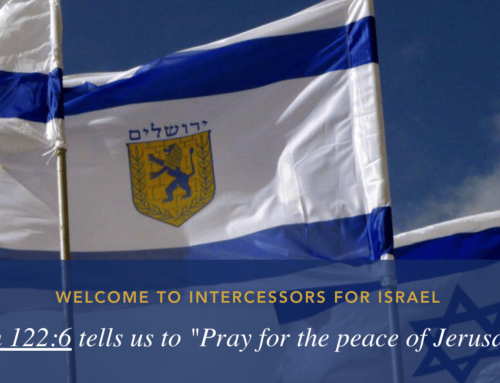
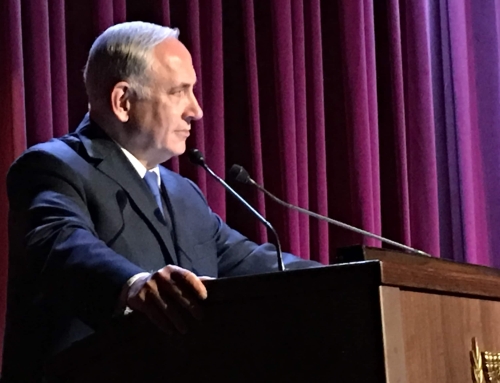
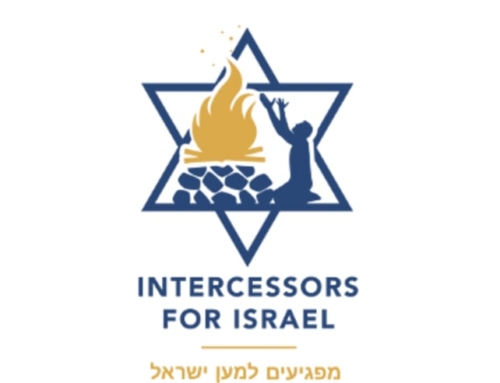
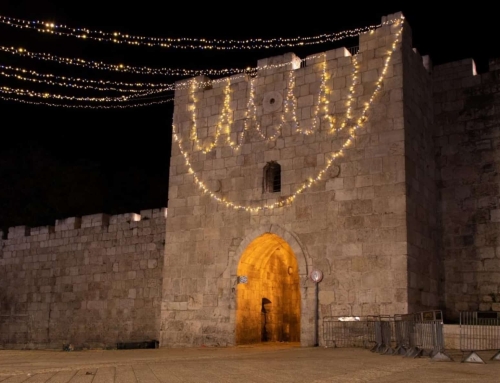
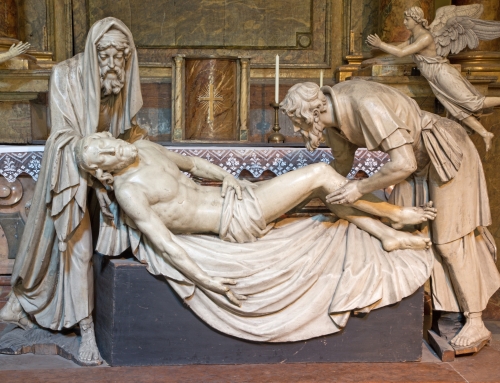
? all week – smb